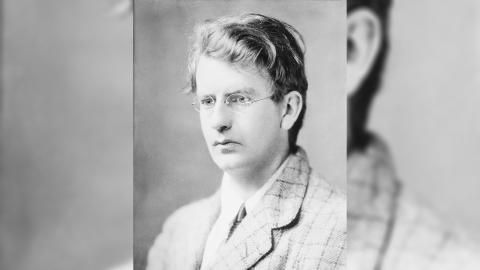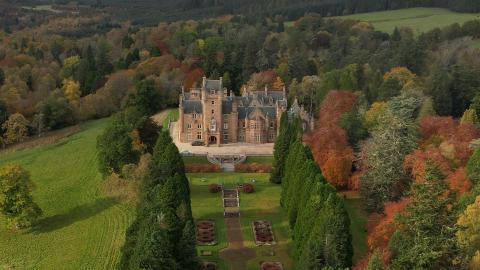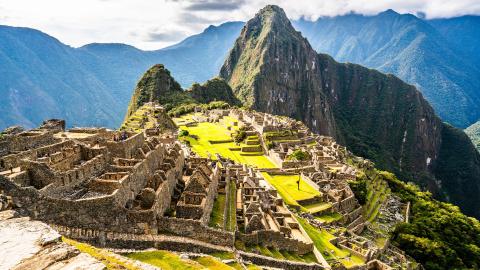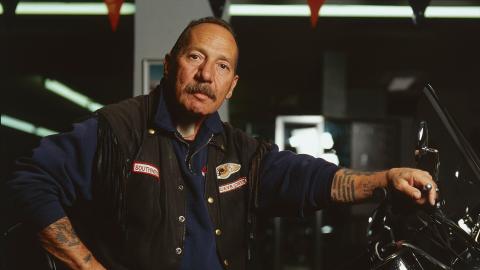Where the Vikings Left their Mark
Vikings. Giant, bloodthirsty, bushy-bearded men adorned with horned helmets and colossal axes. Hell-bent on a systematic programme of rape, pillage, randomly sacking towns and a penchant for wrecking up monasteries, right?
Wrong.
Like the common-garden playground bully, the truth is the Vikings weren’t all that bad. Just misunderstood. Maybe they just wanted to be loved?
So who exactly were the Vikings? A clue is in the name. The word ‘viking’ comes from the Old Norse meaning ‘pirate raid’. Yet not all those who came to the British Isles arrived with extreme violence in mind. Indeed it has become a matter of scholarly debate as to whether it was just the raiders who were referred to as Vikings, rather than the more peaceful Norse settlers.
Clear? No? Let’s muddy the waters a little more.
The first recorded Viking incursion was in 793 AD. A grotesque orgy of violence ensued and ended with the destruction of the monastery on the holy island of Lindisfarne, off England’s north-eastern coast. From then until their presence dwindled after the Battle of Stamford Bridge in 1066, the Viking Age represented a fascinating – albeit relatively fleeting – period of British history.
Many suggest their invasions were in retaliation to what they saw as trespassing on their tribal lands by Christian missionaries. Some say it was because they wanted access to the lucrative southern European trade routes; some say that Scandinavia was simply too cold and they couldn’t grow anything. Even romantic wanderlust has been mooted, although it’s unlikely they came for a holiday.
One thing is clear, the Vikings left an indelible mark on Britain’s culture, language and geography that endures to this day… In fact, if you look for the Vikings today, you may be surprised by what you find.
Viking place names in Britain
There were Viking sites and settlements all across Europe. If you live in Derby, Grimsby, Rugby or Whitby – in fact any town that ends in -by (from the Old Norse meaning a ‘farmstead’ or ‘village’) – you live in a town settled by the Vikings, exactly like Brondby and Lyngby in Denmark.
The same goes for towns ending in -thorpe (‘outlying farm’) such as Scunthorpe and Grimethorpe. In Yorkshire alone there are 210 -by places and 155 -thorpes!
Viking English
Perhaps the most enduring legacy of the Viking occupation is the language. Our visitors spoke a northern Germanic language known as Old Norse, similar in grammar, lexicography and word structure to modern English. Many scholars have supposed that the English we speak today doesn’t merely borrow from Norse, it’s wholly based on it. The Old English spoken before the Vikings arrived died out and a derivative of Old Norse survived to this day, however bastardised a version.
A thousand or more Old Norse words became part of what is known as Standard English. Most of which are objects and actions we use every day including skirt, cake, fog, freckles, neck, moss, sister, window, knife, smile, seat, gift, egg, cross, leg, steak and Thursday - named after Thor, the mythical Norse god of thunder.
Viking surnames in Britain
As well as place names, many of our commonest surnames are Norse. Are you a Benson, Jackson, Stevenson or Davidson? If your surname ends in -son and you live anywhere north of Nottingham, it’s likely you have direct lineage to a Viking. Hopefully one of the nice hardworking farmers, not one of the marauding berserkers, although it’s a thought that’s going to fester, isn’t it?
Viking Hoards
Despite being such a dominant force, in the three centuries they were here the Vikings left surprisingly little physical evidence. What they did leave were stashes of coins, jewellery, small armaments and religious iconography. Sporadically since the late eighteenth century, Viking hoards have been discovered, mainly in Yorkshire, Lancashire and Scotland.
The UK’s biggest hoard of Viking treasure – made up of silver bracelets, ingots and brooches, gold rings, an enamelled Christian cross and a decorative bird-shaped pin – was found in a field near Kirkcudbright in south-west Scotland 2014. An amateur detectorist found what was described as ‘the richest collection of rare and unique Viking-age objects ever found in Britain or Ireland’.
So apart from place names, surnames, Hoards and English…
When the Vikings arrived at the back end of the eighth century, they were still ostensibly a pre-literate, pagan-worshipping Iron Age people. It’s true that for much of their stay they were berserk axemen you wouldn’t want to meet on a dark night, but as well as language and proper nouns they left their mark in many other ways.
They heavily influenced the rule of law and democracy, setting up the Tynwald on the Isle of Man, the world’s oldest continuous parliamentary body. They took their place in our regal history. Indeed, England had four Viking kings including Cnut. Viking women enjoyed a substantial degree of equality in the familial hierarchy and they developed improvements to farming and fishing, even importing the famous Herdwick sheep breed.
But more important than any of that – the Vikings created England. Granted not directly, but without them it’s unlikely England as we know if would exist at all.
Before the Vikings came to Britain, the divided Anglo-Saxon kingdoms were locked in an internecine struggle for supremacy. The Vikings swept all that away, destroying all these kingdoms with the exception of Alfred’s Wessex. The slow, methodical campaign to reclaim all the lands lost to the Vikings played out over more than two centuries and the end result was a single, unified Anglo-Saxon kingdom - England.
And remember… Vikings never leave quietly
The last throw of the Viking dice was in September 1066 at the Battle of Stamford Bridge, when King Harold Godwinson’s English army faced off against the Viking forces of King Harald Hardrada and, bizarrely, Godwinson’s own brother.
The Scandinavians were defeated in a vast and bloody battle and the few survivors were allowed to leave after pledging not to attack England again. Less than a month later King Harold himself was defeated by William the Conqueror, a Norman duke on the battlefield of Hastings. And who were the Normans? They were Northmen. Otherwise known as…Vikings.
So they actually won. Stick that in your rør and smoke it.
For more articles about the history and culture of the Vikings, check out our Viking history hub.
















